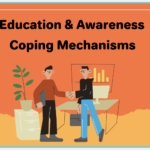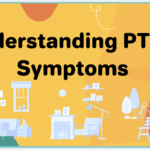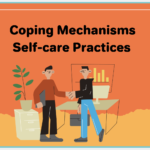Moral injury is a term increasingly recognized within the context of military psychology, referring to the psychological, emotional, and spiritual distress that arises from actions or decisions that violate an individual’s moral or ethical beliefs. Unlike post-traumatic stress disorder (PTSD), which typically stems from traumatic events that threaten an individual’s life or physical safety, moral injury pertains specifically to feelings of guilt, shame, and remorse stemming from one’s own behaviors during wartime or military service. This distinction is vital in understanding the unique experiences faced by service members and veterans.
Moral injury can occur in various situations, such as witnessing or being involved in acts of violence, decisions that result in the loss of innocent lives, or even failing to act when action might have been warranted. Such experiences can lead to deep feelings of betrayal, loss of trust in oneself, or the environment, thereby complicating the service member’s ability to come to terms with their experiences. In essence, moral injury represents a profound conflict between an individual’s actions and their moral compass, often resulting in an intense internal struggle.
The recognition of moral injury as a significant psychological condition has gained momentum over recent years. Scholars and clinicians have increasingly acknowledged its impact on veterans, emphasizing that the psychological ramifications of warfare extend beyond traditional diagnoses. Growing awareness stems from extensive research and anecdotal evidence illustrating how moral injury affects mental health, relationships, and overall well-being. As society continues to better understand the psychological impacts of military service, addressing moral injury alongside PTSD may lead to more comprehensive treatment approaches for those wounded by the invisible scars of war.
The Impact of War on Military Veterans
The experience of war profoundly affects military veterans in multiple dimensions, particularly psychologically and emotionally. Upon returning home, many veterans confront a myriad of challenges that significantly impact their mental well-being. Common issues include post-traumatic stress disorder (PTSD), depression, and anxiety, all of which can arise from the unique stressors associated with combat and military life. Research indicates that approximately one in eight veterans suffers from PTSD, a condition marked by persistent nightmares, flashbacks, and severe anxiety related to traumatic events experienced during service.
Furthermore, the transition from a structured military environment to civilian life can exacerbate feelings of isolation and disconnection. Veterans often find it difficult to reintegrate into communities that are largely unaware of the complexities involved in their military experiences. This isolation can contribute to depressive symptoms and heighten anxiety levels, leading to a sense of hopelessness. Statistics reveal that untreated mental health issues can lead to detrimental outcomes, including substance abuse and, in some instances, suicide. Tragically, the rates of suicide within the veteran population are alarmingly high, underscoring the necessity for heightened awareness and support systems.
The relationships veterans maintain post-deployment can also be affected. Friends and family may struggle to comprehend the emotional turmoil that military service can inflict, resulting in strained interactions and potential alienation. In addition to external factors, veterans often grapple with internal conflicts related to their roles in combat, questioning the morality of their actions during war, which can culminate in feelings of guilt and shame. These experiences are pivotal in understanding how issues such as moral injury emerge, highlighting a need for comprehensive mental health support for veterans and an empathetic approach to their unique challenges.
Understanding the Distinction: Moral Injury vs. PTSD
The concepts of moral injury and post-traumatic stress disorder (PTSD) are often conflated, yet they encompass distinct experiences that military veterans may face. While both conditions arise from the challenges of combat, they stem from different sources and resonate through unique psychological symptoms.
Moral injury is primarily associated with the psychological distress that results from actions or decisions that transgress an individual’s moral code. It might surface when a veteran feels they violated their ethical beliefs—perhaps by taking an action that resulted in civilian casualties or by failing to prevent harm to others. Such conflicts provoke feelings of guilt, shame, and betrayal, not just from external circumstances, but from an internal moral compass that has been compromised.
In contrast, PTSD is characterized by symptoms that follow exposure to traumatic events, such as those experienced in combat. Symptoms can include intrusive memories, severe anxiety, nightmares, and emotional numbness. PTSD is often a response to direct threats to one’s safety or life, processed through experiences that can impart lasting psychological effects. For instance, a soldier who witnesses a fellow combatant’s death may develop PTSD as a result of the traumatic nature of the event, rather than solely from the violation of their ethics.
Real-life examples further illustrate this distinction. A veteran may feel moral injury after having to make a split-second decision that resulted in unintended consequences, struggling with intricate moral implications. Conversely, another veteran who has experienced violent confrontations may encounter PTSD, grappling with flashbacks and anxiety related to their survival instincts being triggered in life-threatening situations.
By understanding these differences, it becomes possible to address the unique needs of veterans, ensuring that treatment is tailored to their specific experiences and psychological burdens. Proper recognition of moral injury as separate yet equally consequential to PTSD is crucial in developing comprehensive support systems for those who have served.
Signs and Symptoms of Moral Injury
Moral injury is a psychological construct often experienced by military veterans, defined by the emotional turmoil stemming from actions or inactions during combat that conflict with one’s moral beliefs. Veterans may exhibit a range of signs and symptoms linked to this profound inner turmoil. Understanding these manifestations is crucial for recognizing and addressing the challenges faced by those who have served in the military.
One prevalent symptom of moral injury is the feeling of betrayal, particularly towards the military institution or leaders. Veterans may perceive decisions made by command as morally reprehensible, leading to an erosion of trust. This sense of betrayal can spawn feelings of guilt and shame, making it difficult for veterans to reconcile their actions with the moral frameworks they held before enlistment.
Shame often partners with guilt in this context, characterized by a profound sense of personal failure. Veterans might internalize their experiences, feeling that they have betrayed their values or those of their comrades. This shame not only engenders negative self-perception but can also lead to withdrawal from social interactions and support systems, further isolating the individual in their anguish.
Another symptom includes persistent mental anguish, often manifesting as intrusive thoughts or memories of traumatic events. Veterans may struggle with flashbacks and an inability to escape the remorseless cycle of overarching regret. Such mental distress can severely affect their daily living, leading to difficulties in fulfilling work responsibilities or maintaining personal relationships.
It is also common to observe emotional numbing or avoidance behaviors, where individuals consciously or subconsciously distance themselves from reminders of their experiences. By raising awareness about the signs and symptoms of moral injury, we can create a supportive environment that encourages veterans to seek help and foster healing in the aftermath of their service.
The Role of Moral Injury in UK Military Culture
The military culture in the United Kingdom is deeply rooted in concepts of honor, loyalty, and resilience. These ideals play a significant role in shaping the experiences of service members and can inadvertently contribute to moral injury among veterans. Honor, which is held in high regard within military circles, fosters an environment where individuals are expected to uphold ethical standards in the line of duty. However, the complexities of warfare can lead to situations where service members find their actions conflict with deeply held moral values. This internal struggle can become a source of profound distress, commonly identified as moral injury.
Loyalty within the military is another critical tenet. Service members are taught to prioritize their comrades and mission objectives, often at the expense of their mental well-being. This unwavering loyalty can result in an unwillingness to voice concerns or seek help, as service members may fear being perceived as weak or disloyal. The commitment to one’s unit often outweighs individual needs, leading to a culture in which acknowledging moral conflict or emotional struggles is stigmatized.
Additionally, the ‘stiff upper lip’ mentality prevalent in British culture exacerbates the challenges faced by veterans experiencing moral injury. This cultural norm encourages individuals to endure hardship without displaying vulnerability, reinforcing the idea that expressing emotions is a sign of weakness. As a result, service members may suppress feelings of guilt, shame, or anxiety associated with their experiences, leading to increased isolation and mental health issues post-deployment.
In conclusion, while the values of honor, loyalty, and resilience contribute to the strength of military culture in the UK, they also play a pivotal role in perpetuating moral injury among veterans. Understanding these cultural dynamics is essential for addressing the invisible wounds that many carry long after their service has ended.
Case Studies: Personal Stories of Moral Injury
Moral injury, a complex psychological phenomenon, often manifests in military veterans as a result of their experiences during conflict. It can arise from the actions taken or not taken that conflict with one’s moral beliefs, leading to a profound sense of guilt and shame. To better understand the implications of moral injury, we can explore the stories of several UK veterans who have bravely shared their experiences.
One such case is that of John, a former infantryman who served in Afghanistan. He faced a critical situation during an operation where civilian casualties occurred as a result of military engagement. John grapples with the memories of this incident, feeling plagued by the belief that he could have acted differently to prevent the loss of innocent lives. The weight of his decision lingers, contributing to his ongoing struggle with anxiety and depression. For John, the journey towards healing has involved therapy, peer support groups, and advocacy work, focusing on education about moral injury among his peers.
Another notable story is that of Sarah, a nurse who served in a combat field hospital. Sarah often recounts the emotional toll of providing care to soldiers while witnessing the devastating effects of war on civilians, including young children. She describes her experiences as profoundly conflicting, as she aimed to save lives while simultaneously confronting the reality that her actions could inadvertently contribute to suffering. Through a combination of counseling and creative expression, such as painting, Sarah has been able to process her feelings and share her narrative, which has brought her a sense of community and support.
These personal stories resonate with many veterans, illustrating the multifaceted nature of moral injury. The impact on their lives extends far beyond the battlefield, affecting relationships, mental health, and overall life satisfaction. By showcasing these experiences, we can foster a deeper understanding of moral injury and its far-reaching consequences, emphasizing the need for comprehensive support systems for those who have served.
The Path to Recovery: Healing Moral Injury
Healing from moral injury is a complex process that requires a multifaceted approach, acknowledging the deep psychological wounds explained by those who have served. Different therapeutic methods can facilitate recovery for UK military veterans grappling with the effects of their experiences. Among these approaches, Narrative Exposure Therapy (NET) has emerged as a compelling option. This technique allows individuals to recount their life stories in a safe environment, integrating traumatic memories into a coherent narrative. By articulating their experiences, veterans can confront the moral dilemmas they faced, enabling a path toward understanding and acceptance.
Cognitive Behavioral Therapy (CBT) is another widely recognized method that can assist in healing from moral injury. CBT emphasizes the relationship between thoughts, emotions, and behaviors. For veterans, this therapy can be particularly effective in addressing the guilt, shame, and anxiety associated with their experiences. Through structured sessions, individuals learn to challenge negative thoughts and develop healthier viewpoints, facilitating emotional resilience. When combined with emotion-focused strategies, CBT can enhance the healing process and promote a greater sense of self-forgiveness.
Group therapy presents yet another avenue for recovery. Engaging with fellow veterans who share similar experiences can create a supportive community, helping individuals feel understood and less isolated. Group sessions may include discussion, expressive arts, or peer-led initiatives, providing a platform to share burdens and foster solidarity. Additionally, various specialized organizations in the UK, such as the Veteran’s Mental Health Transition, Intervention, and Liaison Service (TILS) and Combat Stress, offer dedicated resources. These organizations provide support networks and confidential counseling specifically designed for veterans, guiding them on their journey toward healing and recovery.
The Importance of Support Systems
The journey of recovery for UK military veterans experiencing moral injury is profoundly influenced by the presence of solid support systems. Family, friends, and community resources play pivotal roles in fostering an environment conducive to healing. Moral injury, characterized by the psychological distress stemming from actions or the lack of action that conflicts with one’s moral beliefs during military service, necessitates a nuanced understanding and compassionate approach from those surrounding the veteran.
Family members often serve as the first line of support, yet they may struggle to comprehend the complex emotions associated with moral injury. Open communication becomes essential. Encouraging veterans to share their experiences can help bridge understanding gaps and foster empathetic reactions. Families should be educated about the nature of moral injury, promoting informed discussions that acknowledge the unique challenges their loved ones face. This proactive engagement can significantly alleviate the sense of isolation that veterans often experience.
In addition to immediate family, broader community support can play a crucial role in the recovery process. Neighboring support groups, veteran associations, or local mental health organizations can provide safe spaces for veterans to connect with others who have similar experiences. Strategies such as community workshops and seminars focusing on moral injury awareness can equip both veterans and civilians with the tools necessary for sensitive conversations and support.
Lastly, aiding the reintegration of veterans into civilian life is instrumental in their healing. Simple gestures, such as inviting veterans to community events or establishing veteran-friendly policies in workplaces, can create an inclusive atmosphere that acknowledges their service while promoting a sense of belonging. Support systems, characterized by understanding and active engagement, are vital in the recovery journey from moral injury, ultimately paving the way for a healthier adjustment to civilian life.
Conclusion: Addressing Invisible Wounds
Moral injury, an often-overlooked aspect of military service, constitutes a significant challenge for UK veterans returning from conflict zones. Unlike physical injuries, which can be easily identified and treated, moral injury manifests in complex psychological and emotional struggles that can lead to long-lasting effects on well-being. For many veterans, feelings of guilt, shame, or betrayal are prevalent, stemming from actions taken or witnessed during their service. Recognizing these invisible wounds is essential for fostering a comprehensive understanding of veterans’ mental health needs.
Addressing moral injury requires a multi-faceted approach, encompassing increased awareness and advocacy for those affected. It is imperative for society to recognize that the psychological toll experienced by veterans goes beyond traditional understandings of post-traumatic stress disorder (PTSD). While PTSD is a significant concern, moral injury demands tailored interventions that provide the necessary support and care to heal from such profound emotional scars.
Enhanced research efforts into moral injury will be crucial to uncover its nuances and develop effective therapeutic strategies. Mental health professionals must receive education on the importance of recognizing and treating moral injury among veterans. Furthermore, support systems should be integrated into existing frameworks, offering veterans a safe space to process their experiences without fear of judgment or stigma.
Ultimately, fostering a culture of empathy and understanding within the community not only benefits veterans but also enriches society as a whole. By acknowledging and addressing the complexities of moral injury, we can ensure that those who have selflessly served their country receive the comprehensive care they deserve, paving the way for healthier reintegration into civilian life.





